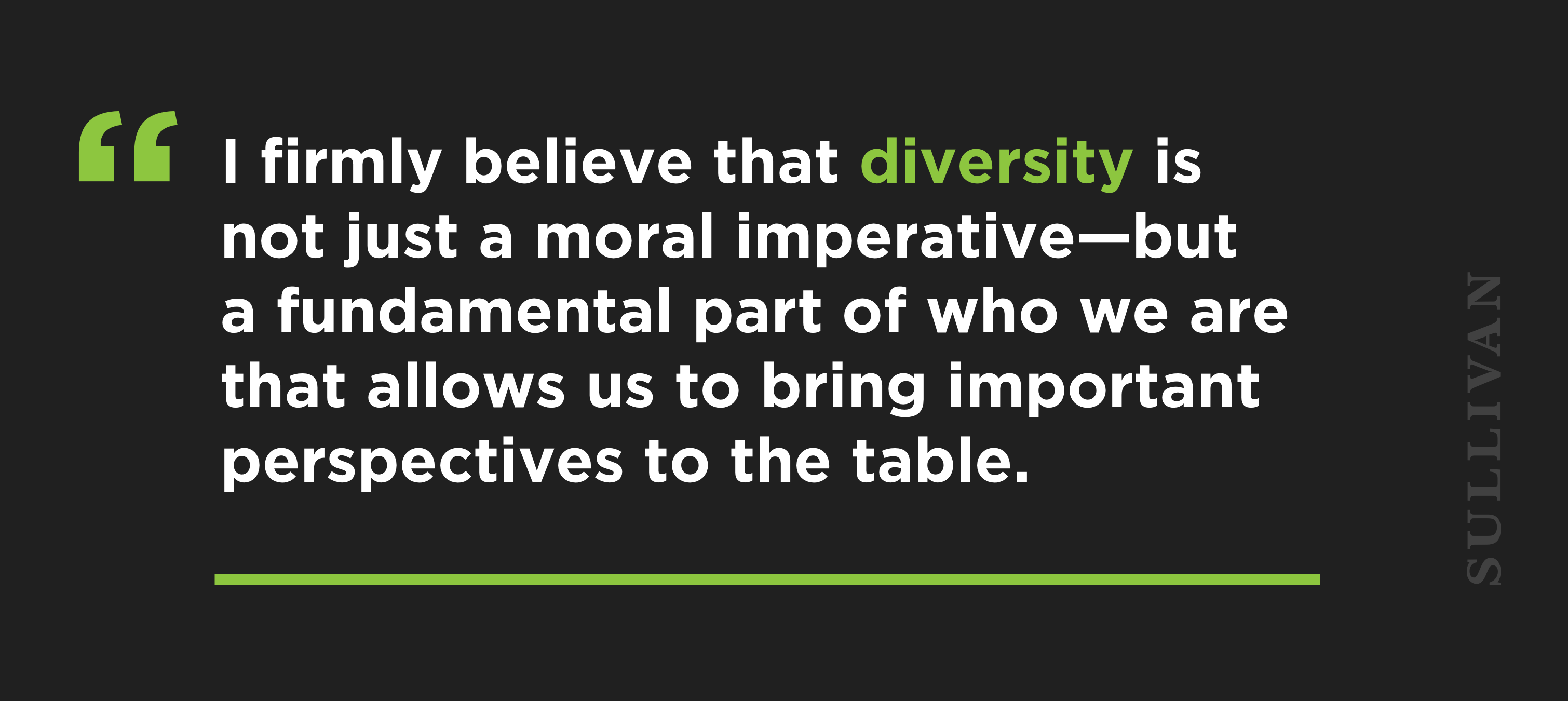Our Commitment to Allyship
Advancing diversity and inclusion in our business and beyond
When I founded Sullivan 30 years ago, most brand agencies focused on high-level awareness building and traditional advertising. Few were positioned to think about how organizations with complex ecosystems could use brand to influence customers at critical points of decision. Even fewer were tackling this challenge as an independent, woman-owned business.
Thinking beyond the status quo has always been integral to our mission. It’s enabled us to push boundaries in our creative work and welcome diverse points of view to our team. I firmly believe that diversity is not just a moral imperative—but a fundamental part of who we are that allows us to bring important perspectives to the table.
I also believe that our commitment to diversity must be data-driven, actionable, and reflective of the organization we’re trying to build. That’s why we have surveyed our employees, our vendors, and connected with our clients to develop a cogent set of priorities that will take our commitments further in the future and hold us accountable.
As we strive to be better partners to our clients, better customers to our vendors, and a better home-away-from-home for our employees, we are:

1. Ensuring that at least 10% of new hires are Black and increasing our overall minority representation from 15% to at least 25% of our workforce.
2. Engaging Sullivan team members in employee-led allyship initiatives and encouraging individual community service.
3. Conducting an annual firm-wide day of service to give back to our community, with team members selecting the organization and activity.
4. Continuing to invest a minimum of $250,000 per year in pro bono or professional courtesies, for one or more organizations that promote equal access and justice for all—adding to our $3.185M in contributions over the past twelve years.
5. Matching employee contributions up to $100 per year to nonprofits working to create educational opportunities and to combat racism.
6. Seeking out minority vendors, where possible, making it a tangible criterion in the selection process for all outside purchases.
7. Vetting our retirement savings plans to ensure we include ethically and socially responsible companies and funds as investment options for our employees.
It’s been inspiring to see our team embrace these initiatives wholeheartedly. We’ve begun to see some changes already, but there is much to be done. That’s why we are in it for the long haul.


